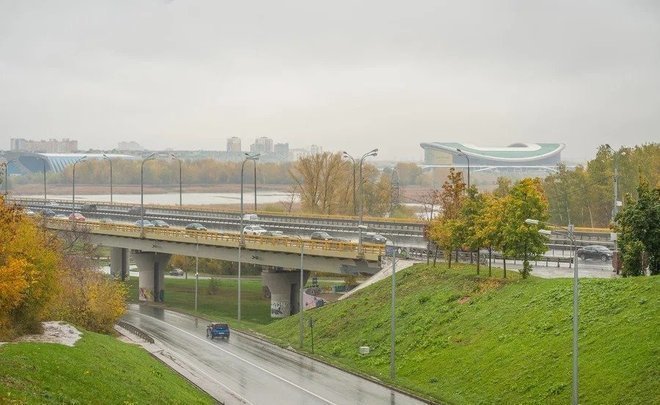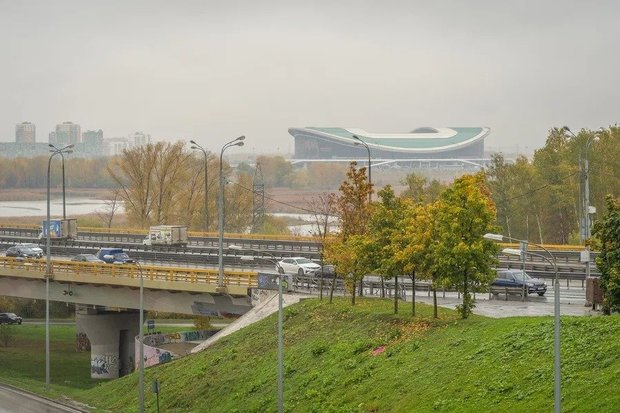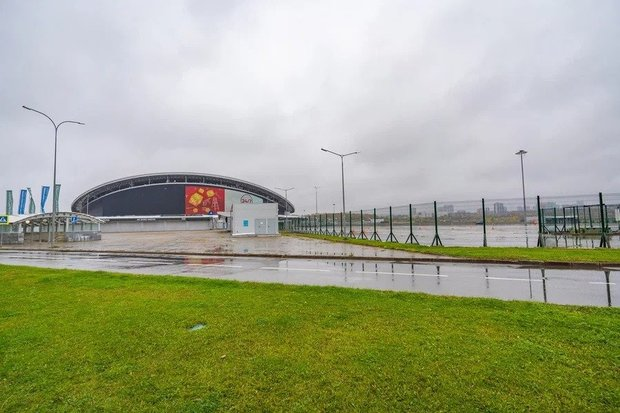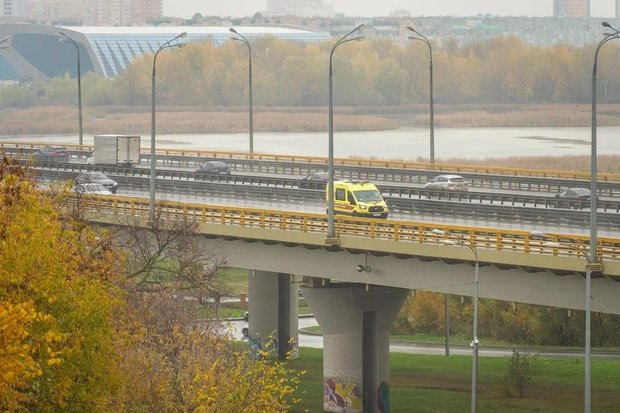On the count of four: urban funicular railway to be built in Kazan
Marsel Mingalimov’s son left the project, while the namesake of the main architect of Kazan became the benefactor

As Realnoe Vremya found out, the construction of a funicular railway is finally starting in Kazan whose project was presented in the Tatarstan Ministry of Transport as early as in summer of 2014. Kazan Funicular Railways that is starting to build the Airbridge between Gorky Park and Ak Bars Arena confirmed the information for our newspaper. Many have changed in the last eight years — from the company that is implementing the project to the concept of the railway itself. Read more about the project that has been revived after nearly a decade, its new inspiration and prospects in our report.
“We’re waiting for an approval from the city”
Kazan Funicular Railways company created a year ago started to implement Airbridge urban funicular railway project between Gorky Park and Ak Bars Arena stadium. The possibility of the construction is confirmed by a state historical and cultural inspection act. Director General of the company and Chairman of the Russian Snowboarding Federation in Tatarstan, President of the Tatarstan Freestyle and Snowboard Federation and former Director of Kazan ski complex Denis Belov told Realnoe Vremya that the works would start as soon as an approval from the city for the construction was obtained.
“Now we are designing the route, we have money for the construction, the location is stations was chosen. The first one Gorky Park will be right behind Korston, the end station is at the car park of Ak Bars Arena,” said Belov.
According to him, a trip from Gorky Park to the intermediary station Uram will take 4,5 minutes, a trip from there to the stadium station will be 5,5 minutes. So one will be able to go from the city centre to Novo-Savinovsky District in 10 minutes.
What was clear from Belov’s explanation is that the Airbridge project is still considered from two perspectives: both tourist and transport.
“Tariffs will be fixed for citizens that won’t differ from tariffs to other urban transport, while tourists will have their own pricing.”
Belov refused to explain how they would manage to have Kazan citizens in one car and tourists with tickets bought for different prices and tell us more about the project — he said “it was too early yet.”
Future road to the ski resort that doesn’t yet exist
Realnoe Vremya has the scheme of the route of the future railway at its disposal. The Gorky Park station will occupy an area of 6,000 square metres where once the Kazan Hospital for Infectious Diseases was located.
A considerable part of the corridor of the railway will go almost above the main avenue of Gorky Park. Uram station will be eastward from treatment facilities that are near Millennium Bridge.

Whereas the southwest part of Ak Bars Arena’s car park is booked for Sportivnaya station. This is the segment where Director General of Kazan Arena Radik Minnakhmetov planned to build a ski track.

The total length of the route will be 2,773 metres, while the total area of its constructions will be 2,9 ha. Investments in the project are assessed at 3 billion rubles, its implementation will allow creating 120 new jobs. The investor has about a billion rubles, he intends to get another two by taking out a loan, the republican budget isn’t planned to be used in the financing of the project.
A project not provided with passenger traffic
The project of the Airbridge is not the first attempt of building a funicular railway in the Tatarstan capital in the 21st century. A 300-metre railway was built in Gorky Park and operated from 1979 to 1984 connecting the park with the beach. However, it was pulled out of service because of malfunctions, sacked and disassembled during the construction of the Millennium Bridge. Construction plans were announced several times since the 2000s. However, no project reached the finishing line.
In 2014, the Tatarstan Ministry of Transport made plans for the construction of funicular railways between Korston hotel and the Acquatics Palace and between Kazan National Culture Centre and Tatneft Arena public — they wanted to build it by the 2015 FINA World Championships, however, it wasn’t built, the project was put on hold in 2016. Then two projects — the construction of a walkway between Kremlin metro station and the railway station and a funicular railway between Kazan National Culture Centre and Tatneft Area and now demolished Riviera entertainment complex were added to the Tatarstan Transport Development Programme through 2020 but weren’t constructed. Moreover, the idea of the construction of a railway between Korston and Kazan Arena was characterised as unfeasible in the Tatarstan Ministry of Transport — not provided with regular passenger traffic in the future. The Architecture and Urban Engineering Office was also against because the supports of the railway will close the view to the Kremlin.
In 2019, the project of the funicular railway from Korston to Kazan Arena was on the list of priority investment projects. However, in January 2020, head of the Kazan Executive Committee Denis Kalinkin scrapped the project that hadn’t been realised by issuing a decree that acknowledged the document about the preparation of the funicular railway project between Korston and Kazan Arena invalid without explanation.

So the project of the urban funicular railway implemented by Denis Belov can be considered at least the fourth attempt of providing an air communication between the centre of Kazan and Ak Bars Arena.